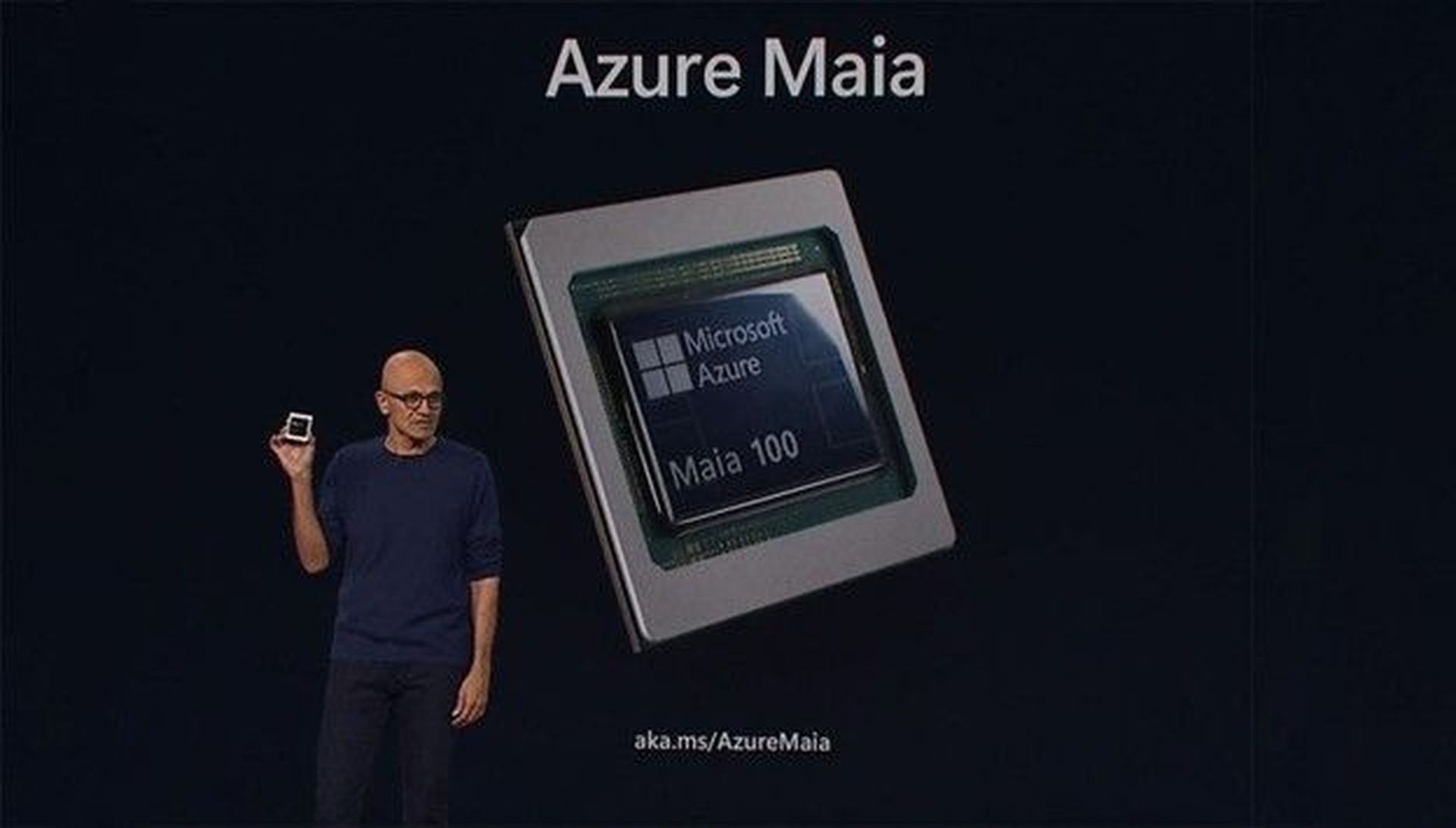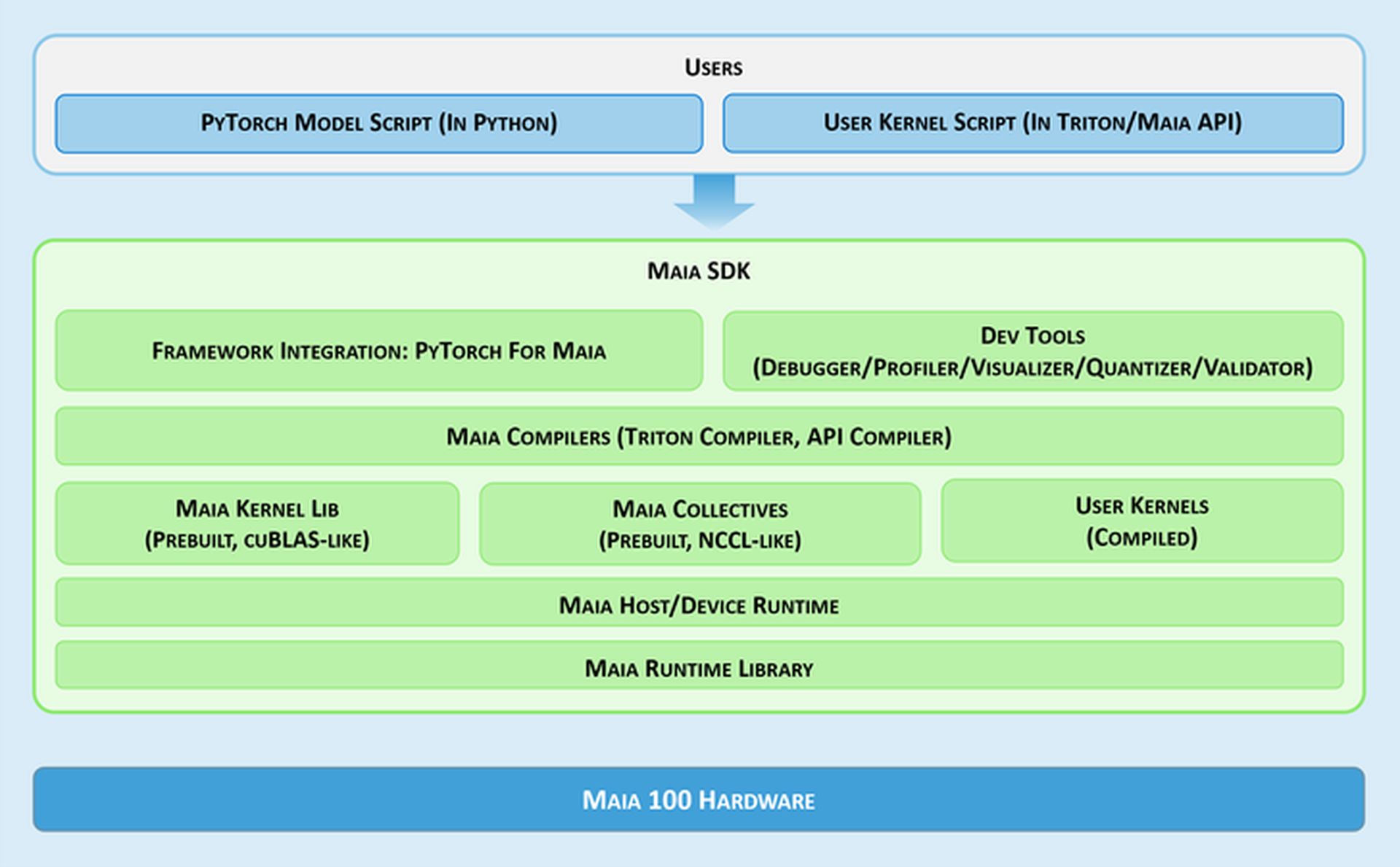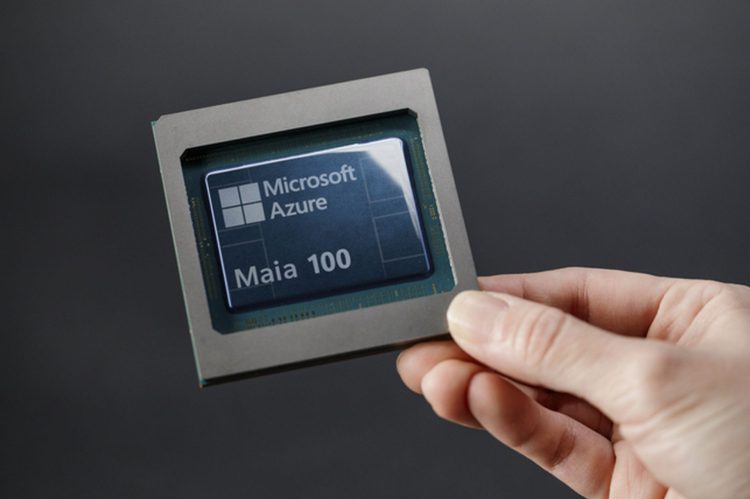Microsoft’s Maia 100 is a custom AI accelerator designed to revolutionize the way AI workloads are executed in the cloud.
As the demand for AI-powered applications continues to grow, there is an increasing need for hardware that can handle the massive computational demands of these workloads. Maia has been specifically designed to meet this need, offering exceptional performance, efficiency, and scalability.
What is Microsoft Maia 100 chip?
Maia 100 is a custom AI accelerator chip developed by Microsoft. It is designed to accelerate the execution of AI workloads in the cloud. Maia 100 is based on a new architecture that is specifically optimized for AI workloads.
This architecture includes a high-speed tensor unit, a vector processor, and a DMA engine.

What makes Maia 100 special?
Maia 100 is a highly specialized AI accelerator that offers several key benefits:
High performance
Maia 100 is designed to excel in handling a wide array of AI workloads, from natural language processing to computer vision and more. Its exceptional performance is attributed to:
- High thermal design power (TDP): Maia 100 can handle up to 700W of power, allowing it to perform complex AI tasks without overheating or throttling.
- Ample bandwidth: The chip offers a total of 1.8 terabytes per second of bandwidth, ensuring that data can flow smoothly and efficiently between the processor and memory. This is crucial for AI workloads that often involve large datasets.
Efficiency
Maia 100 is engineered to be power-efficient, a critical factor in reducing operational costs and environmental impact. This efficiency is achieved through:
- Lower-precision storage data type: By using a lower-precision data type, Maia 100 can reduce the amount of memory required for computations, leading to improved energy efficiency.
- Data compression engine: The chip incorporates a data compression engine that can reduce the size of data, further enhancing efficiency and reducing bandwidth requirements.
Scalability
Maia 100 is designed to scale to meet the growing demands of AI workloads. This scalability is enabled by:
- Ethernet-based interconnects: Maia 100 supports high-bandwidth Ethernet-based interconnects, allowing it to be easily integrated into large-scale AI clusters. This enables seamless communication and data transfer between multiple Maia 100 chips.

Developer tools
To facilitate the development and deployment of AI applications on Maia, Microsoft provides a comprehensive software development kit (SDK). This SDK includes a range of tools that can help developers:
- Debug: Identify and fix errors in their AI models.
- Profile: Analyze the performance of their AI models to identify bottlenecks and optimize code.
- Visualize: Visualize the behavior of their AI models to gain insights into their performance.
- Quantize and Validate: Convert AI models to lower-precision formats to improve efficiency and validate their accuracy.
These tools empower developers to effectively utilize the capabilities of Maia 100 and build high-performance AI applications.
The market is hot!
The AI hardware market is highly competitive, with several major players vying for market share. Here are some of the key competitors of Maia 100:
- NVIDIA: NVIDIA is a leading provider of AI hardware, with its Tesla and RTX series GPUs being widely used for AI workloads.
- Intel: Intel offers a range of AI accelerators, including the Habana Gaudi and Intel Xeon Scalable processors.
- AMD: AMD is another major player in the AI hardware market, with its Radeon Instinct GPUs and EPYC CPUs.
- Google TPU: Google’s Tensor Processing Unit (TPU) is a custom AI accelerator designed for machine learning workloads.
- Graphcore: Graphcore is a British semiconductor company that specializes in AI accelerators designed for graph neural networks.
- Cerebras Systems: Cerebras Systems is a US-based company that offers the CS-2, a large-scale AI computer system.
These are just a few of the major competitors of Maia. The AI hardware market is constantly evolving, and new players may emerge in the future.
The market for AI hardware is growing rapidly. As more and more companies deploy AI-powered applications, there is a growing demand for high-performance AI accelerators.
Maia 100 is well-positioned to meet this demand. With its advanced features and capabilities, Maia 100 has the potential to become a leading AI accelerator platform.
Featured image credit: Microsoft





